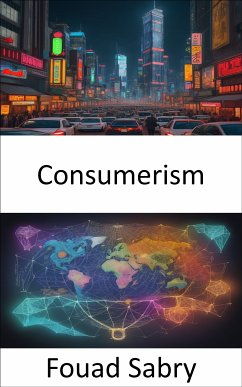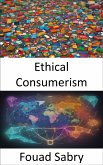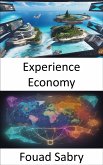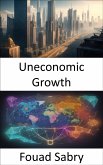What is Consumerism
The term "consumerism" refers to a social and economic system in which the aspirations of many persons involve the acquisition of commodities and services that go beyond those that are required for survival or for the customary displays of status. The concept of consumerism has been present in a variety of societies throughout history. The contemporary concept of consumerism can be traced back to Western Europe before to the Industrial Revolution and began to gain popular acceptance around the year 1900. The Theory of the Leisure Class was a book written by Thorstein Veblen that was published in 1899. It was a book about consumerism that investigated the broad ideals and economic institutions that emerged along with the prevalent "leisure time" at the beginning of the 20th century. "Veblen views the activities and spending habits of this leisure class in terms of conspicuous and vicarious consumption and waste," he writes in the book. Not to be confused with utility or usefulness, both are concerned with the presentation of one's status.
How you will benefit
(I) Insights, and validations about the following topics:
Chapter 1: Consumerism
Chapter 2: Conspicuous consumption
Chapter 3: Overconsumption (economics)
Chapter 4: Commodity fetishism
Chapter 5: Veblen good
Chapter 6: Ethical consumerism
Chapter 7: The Theory of the Leisure Class
Chapter 8: Economic materialism
Chapter 9: Consumer economy
Chapter 10: Anti-consumerism
Chapter 11: Consumer capitalism
Chapter 12: Consumer revolution
Chapter 13: Consumption (sociology)
Chapter 14: Consumer movement
Chapter 15: Hyperconsumerism
Chapter 16: Dematerialization (economics)
Chapter 17: Alternative purchase network
Chapter 18: Green consumption
Chapter 19: Guilt-free consumption
Chapter 20: Consumer culture
Chapter 21: Growing consumer culture of China
(II) Answering the public top questions about consumerism.
(III) Real world examples for the usage of consumerism in many fields.
(IV) Rich glossary featuring over 1200 terms to unlock a comprehensive understanding of consumerism. (eBook only).
Who will benefit
Professionals, undergraduate and graduate students, enthusiasts, hobbyists, and those who want to go beyond basic knowledge or information for any kind of consumerism.
The term "consumerism" refers to a social and economic system in which the aspirations of many persons involve the acquisition of commodities and services that go beyond those that are required for survival or for the customary displays of status. The concept of consumerism has been present in a variety of societies throughout history. The contemporary concept of consumerism can be traced back to Western Europe before to the Industrial Revolution and began to gain popular acceptance around the year 1900. The Theory of the Leisure Class was a book written by Thorstein Veblen that was published in 1899. It was a book about consumerism that investigated the broad ideals and economic institutions that emerged along with the prevalent "leisure time" at the beginning of the 20th century. "Veblen views the activities and spending habits of this leisure class in terms of conspicuous and vicarious consumption and waste," he writes in the book. Not to be confused with utility or usefulness, both are concerned with the presentation of one's status.
How you will benefit
(I) Insights, and validations about the following topics:
Chapter 1: Consumerism
Chapter 2: Conspicuous consumption
Chapter 3: Overconsumption (economics)
Chapter 4: Commodity fetishism
Chapter 5: Veblen good
Chapter 6: Ethical consumerism
Chapter 7: The Theory of the Leisure Class
Chapter 8: Economic materialism
Chapter 9: Consumer economy
Chapter 10: Anti-consumerism
Chapter 11: Consumer capitalism
Chapter 12: Consumer revolution
Chapter 13: Consumption (sociology)
Chapter 14: Consumer movement
Chapter 15: Hyperconsumerism
Chapter 16: Dematerialization (economics)
Chapter 17: Alternative purchase network
Chapter 18: Green consumption
Chapter 19: Guilt-free consumption
Chapter 20: Consumer culture
Chapter 21: Growing consumer culture of China
(II) Answering the public top questions about consumerism.
(III) Real world examples for the usage of consumerism in many fields.
(IV) Rich glossary featuring over 1200 terms to unlock a comprehensive understanding of consumerism. (eBook only).
Who will benefit
Professionals, undergraduate and graduate students, enthusiasts, hobbyists, and those who want to go beyond basic knowledge or information for any kind of consumerism.
Dieser Download kann aus rechtlichen Gründen nur mit Rechnungsadresse in A, B, BG, CY, CZ, D, DK, EW, E, FIN, F, GR, H, IRL, I, LT, L, LR, M, NL, PL, P, R, S, SLO, SK ausgeliefert werden.









